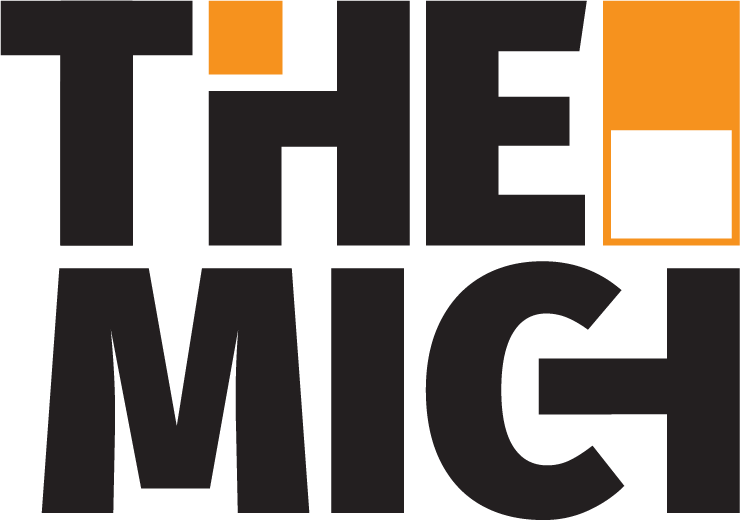In today’s fast-paced world, where financial stress is a common concern, prioritizing financial wellness has become paramount. Financial wellness programs offer individuals and organizations invaluable resources and strategies to navigate the complexities of personal finance successfully
In this comprehensive guide, we delve into the significance of financial wellness programs, their benefits, and how they can empower you to achieve lasting financial stability.
Table of Contents
Understanding Financial Wellness Programs
Financial wellness programs are structured initiatives designed to improve an individual’s overall financial health. These programs encompass various components, including education, counseling, and resources aimed at enhancing financial literacy and well-being. Whether offered by employers, financial institutions, or community organizations, these programs aim to empower individuals with the knowledge and tools necessary to make informed financial decisions and achieve their financial goals.
The Need for Financial Wellness Programs
In today’s fast-paced and economically uncertain world, the need for financial wellness programs has never been more critical. Economic stress not only affects individuals’ financial health but also takes a toll on their mental well-being, ultimately impacting workplace productivity. Let’s delve into the profound implications of economic stress on mental health and its ripple effects on workplace productivity, highlighting the urgency for effective financial wellness programs.
Economic Stress and Mental Health
Financial insecurity and economic stress are significant contributors to mental health challenges such as anxiety, depression, and chronic stress. The inability to meet financial obligations, mounting debt, or unexpected financial setbacks can lead to feelings of helplessness, hopelessness, and fear about the future. Moreover, the constant worry and anxiety associated with financial struggles can impair cognitive function, disrupt sleep patterns, and strain relationships, further exacerbating mental health issues.
Studies have shown a clear link between financial stress and mental health disorders, with individuals experiencing financial difficulties being at a higher risk of developing psychological symptoms. Left unaddressed, these mental health challenges can have far-reaching consequences, impacting every aspect of an individual’s life, including their ability to perform effectively in the workplace.
Impact on Workplace Productivity
The repercussions of economic stress extend beyond the individual, affecting workplace dynamics and productivity levels. Employees grappling with financial worries may experience decreased focus, motivation, and engagement at work. Persistent financial stressors can lead to absenteeism, presenteeism, and higher turnover rates, ultimately compromising organizational productivity and profitability.
Moreover, the prevalence of financial stress among employees can create a toxic work environment characterized by low morale, interpersonal conflicts, and reduced teamwork. Employers may also incur additional costs associated with recruiting and training new employees to replace those who leave due to financial stress-related issues.

Key Benefits of Financial Wellness Programs
- Improved Financial Literacy: One of the primary benefits of participating in a financial wellness program is the opportunity to enhance your financial literacy. These programs often provide educational resources and workshops covering topics such as budgeting, saving, investing, and debt management, equipping participants with essential financial knowledge.
- Reduced Financial Stress: Financial stress can have a significant impact on overall well-being and productivity. By implementing effective financial wellness strategies, individuals can reduce financial stress levels, leading to improved mental and emotional well-being. Through personalized guidance and support, participants can develop effective strategies for managing their finances and achieving greater peace of mind.
- Increased Savings and Retirement Preparedness: A key focus of many financial wellness programs is encouraging individuals to save for the future and prepare for retirement adequately. By promoting saving habits, offering retirement planning resources, and facilitating access to retirement accounts, these programs empower participants to build a secure financial future for themselves and their families.
- Enhanced Employee Engagement and Productivity: Employers increasingly recognize the importance of supporting employee financial wellness as part of their overall benefits package. By offering financial wellness programs, employers can demonstrate their commitment to employee well-being and foster a more engaged and productive workforce. Employees who feel financially secure are often more focused, motivated, and loyal to their employers.
Navigating Legal and Ethical Dimensions in Financial Wellness Programs
In the realm of financial wellness programs, addressing legal and ethical considerations is paramount to ensure compliance with regulatory requirements and safeguarding employee privacy and confidentiality. Let’s explore the legal and ethical dimensions inherent in these programs, focusing on regulatory compliance and the protection of employee privacy rights.
Compliance with Regulatory Requirements
Financial wellness programs operate within a complex regulatory landscape governed by laws such as the Employee Retirement Income Security Act (ERISA), the Health Insurance Portability and Accountability Act (HIPAA), and various state regulations. Compliance with these laws is essential to avoid legal pitfalls and ensure the legitimacy and effectiveness of financial wellness initiatives.
- ERISA Compliance: Employers offering financial wellness programs that include retirement benefits must adhere to ERISA guidelines, which mandate fiduciary responsibilities, disclosure requirements, and prudent investment practices to protect employees’ retirement assets.
- HIPAA Compliance: When financial wellness programs involve the collection and use of employee health information, compliance with HIPAA regulations is necessary to safeguard sensitive data and ensure confidentiality.
- State Regulations: Employers must also consider state-specific regulations governing financial services, consumer protection, and data privacy, as these laws may impose additional requirements or restrictions on the operation of financial wellness programs.
By staying abreast of regulatory updates and consulting legal counsel as needed, organizations can mitigate legal risks and maintain compliance with applicable laws.
Safeguarding Employee Privacy and Confidentiality
Respecting employee privacy rights and maintaining confidentiality are ethical imperatives that underpin the trust and integrity of financial wellness programs. Employees must feel confident that their personal and financial information will be handled with the utmost discretion and used only for authorized purposes.
- Data Security Measures: Employers should implement robust data security measures, such as encryption, access controls, and regular security audits, to protect employee information from unauthorized access, breaches, or misuse.
- Informed Consent: Prior to collecting any personal or financial data, employers should obtain informed consent from employees, clearly explaining the purposes for which the information will be used, how it will be protected, and any third parties with whom it may be shared.
- Confidentiality Agreements: Financial wellness program administrators and service providers should be bound by confidentiality agreements or contractual obligations to ensure the confidentiality of employee data and prevent unauthorized disclosure.
- Anonymized Aggregate Reporting: When reporting on the effectiveness or outcomes of financial wellness programs, employers should aggregate data to ensure individual privacy and anonymity, avoiding the disclosure of personally identifiable information.
Strategies for Achieving Financial Wellness
Achieving financial wellness requires a proactive approach and a commitment to implementing sound financial practices. Here are some key strategies to help you on your journey to financial well-being:
- Create a Budget: Start by assessing your income, expenses, and financial goals to create a realistic budget. Tracking your spending and identifying areas where you can save can help you achieve greater financial stability.
- Build an Emergency Fund: Establishing an emergency fund can provide a financial safety net in the event of unexpected expenses or emergencies. Aim to save enough to cover three to six months’ worth of living expenses.
- Manage Debt Wisely: Develop a plan for managing and paying off debt effectively. Consider prioritizing high-interest debt and exploring strategies such as debt consolidation or refinancing to reduce interest payments.
- Invest for the Future: Take advantage of employer-sponsored retirement plans, such as 401(k) accounts, and consider opening additional retirement or investment accounts to build long-term wealth. Diversifying your investment portfolio can help mitigate risk and maximize returns over time.
Resources for Financial Wellness
In addition to employer-sponsored programs, there are numerous resources available to support your journey to financial wellness. These may include online courses, financial planning tools, personal finance books, and reputable financial websites and blogs. Seeking guidance from certified financial planners or advisors can also provide personalized assistance tailored to your specific financial situation and goals.
Conclusion
Prioritizing financial wellness is essential for achieving long-term financial security and peace of mind. Whether you’re an individual seeking to improve your financial literacy or an employer looking to support your workforce, financial wellness programs offer valuable resources and strategies to help you succeed.
By embracing the principles of financial wellness and taking proactive steps to manage your finances effectively, you can unlock a brighter financial future for yourself and your loved ones. Start your journey to financial wellness today and experience the transformative power of financial empowerment.





